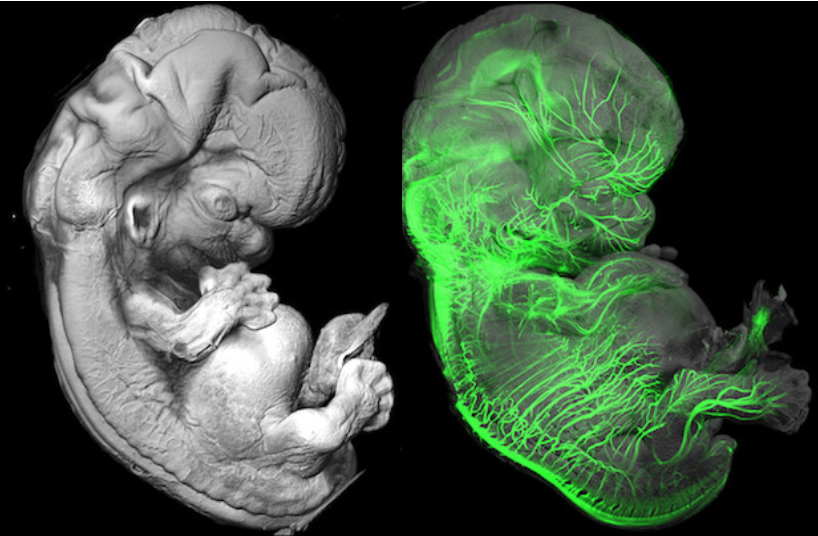 Image 1 of 2
Image 1 of 2

 Image 2 of 2
Image 2 of 2



Sex Unbounded: Breaking the Binary [6-weeks, $180 Suggested]
Instructor: Murtagh | Mondays July 19-August 23 | 6:00-8:00 PM ET
Dominant culture tells us there are only two sexes and corresponding genders. But even as an increasing number of us have come to think of gender as culturally constructed—thanks to public battles over bathrooms and trans kids' rights—we still rarely see anyone argue that sex isn't biologically binary. But if male and female are the only “real” “sexes, how do we make sense of bodies that don’t fit neatly into one category or the other? What are the consequences of understanding trans- and intersex bodies as abnormal deviations or variations of a two-sex model? If there really are only two sexes, how do we make sense of sexual variation across almost all species in nature, from the Auanema, a microscopic worm species with three distinguishable sexes, to the bluegill sunfish that can transform from male to female? This class will re-examine the nature of sex itself. We’ll study how variation, transformation, and complexity—rather than binaries—capture the biology of sex, and how sex is not fixed in time, but instead, can change across an organism’s lifetime. We’ll explore how gendered tropes about the egg and the sperm impact our understandings of sex, and how concepts like embryogenesis can offer new ways of thinking. Ultimately, we’ll destabilize cultural narratives that “biology is destiny” in order to understand sexual variation as central to life. Readings will include texts by theorists such as Raymond Ruyer, Elizabeth Grosz, Emily Martin, Rebecca Hill, and Anne Fausto-Sterling.
We depend on a mix of direct student donations and supplemental donations to make all classes pay-what-you-can. Please pick the pricing tier that corresponds with your needs and that you are able to pay now. If you would like to pay in installments, make your first payment now and make a note on your check-out form. If you would like to donate more later in the term, you can always come back and use the “Make a One Time Donation” button! To use a full scholarship, just pick the $3 tier to cover site/processor fees.
If at any point up to 48 hours before your first class session you realize you will be unable to take the class, we will work with you to reallocate your funds to a future class, to another student’s scholarship, or refund it. After classes begin, we are only able to make partial refunds and adjustments.
Instructor: Murtagh | Mondays July 19-August 23 | 6:00-8:00 PM ET
Dominant culture tells us there are only two sexes and corresponding genders. But even as an increasing number of us have come to think of gender as culturally constructed—thanks to public battles over bathrooms and trans kids' rights—we still rarely see anyone argue that sex isn't biologically binary. But if male and female are the only “real” “sexes, how do we make sense of bodies that don’t fit neatly into one category or the other? What are the consequences of understanding trans- and intersex bodies as abnormal deviations or variations of a two-sex model? If there really are only two sexes, how do we make sense of sexual variation across almost all species in nature, from the Auanema, a microscopic worm species with three distinguishable sexes, to the bluegill sunfish that can transform from male to female? This class will re-examine the nature of sex itself. We’ll study how variation, transformation, and complexity—rather than binaries—capture the biology of sex, and how sex is not fixed in time, but instead, can change across an organism’s lifetime. We’ll explore how gendered tropes about the egg and the sperm impact our understandings of sex, and how concepts like embryogenesis can offer new ways of thinking. Ultimately, we’ll destabilize cultural narratives that “biology is destiny” in order to understand sexual variation as central to life. Readings will include texts by theorists such as Raymond Ruyer, Elizabeth Grosz, Emily Martin, Rebecca Hill, and Anne Fausto-Sterling.
We depend on a mix of direct student donations and supplemental donations to make all classes pay-what-you-can. Please pick the pricing tier that corresponds with your needs and that you are able to pay now. If you would like to pay in installments, make your first payment now and make a note on your check-out form. If you would like to donate more later in the term, you can always come back and use the “Make a One Time Donation” button! To use a full scholarship, just pick the $3 tier to cover site/processor fees.
If at any point up to 48 hours before your first class session you realize you will be unable to take the class, we will work with you to reallocate your funds to a future class, to another student’s scholarship, or refund it. After classes begin, we are only able to make partial refunds and adjustments.